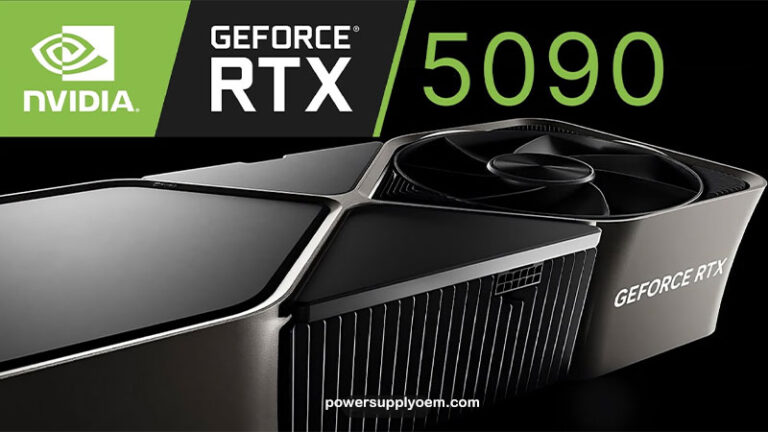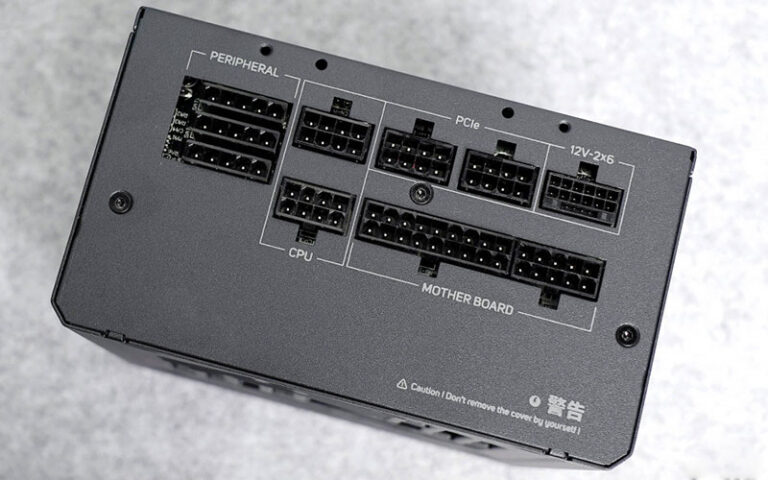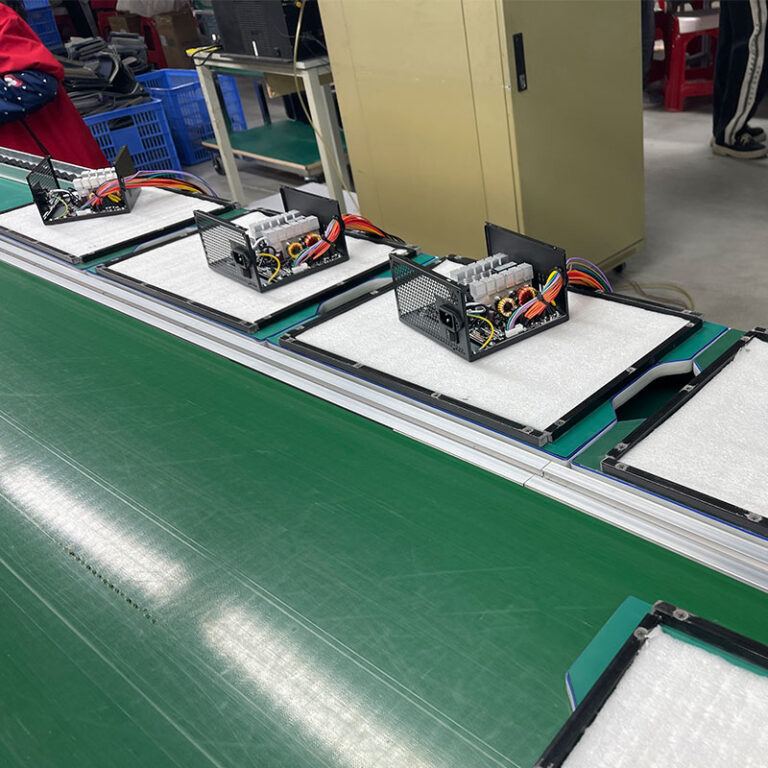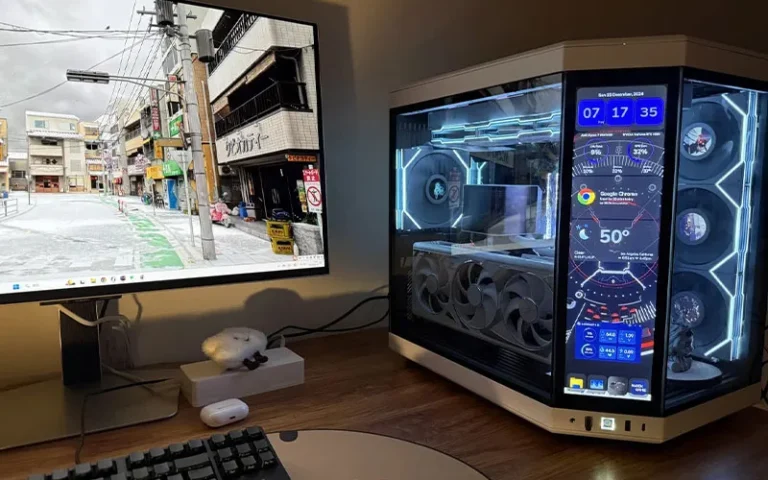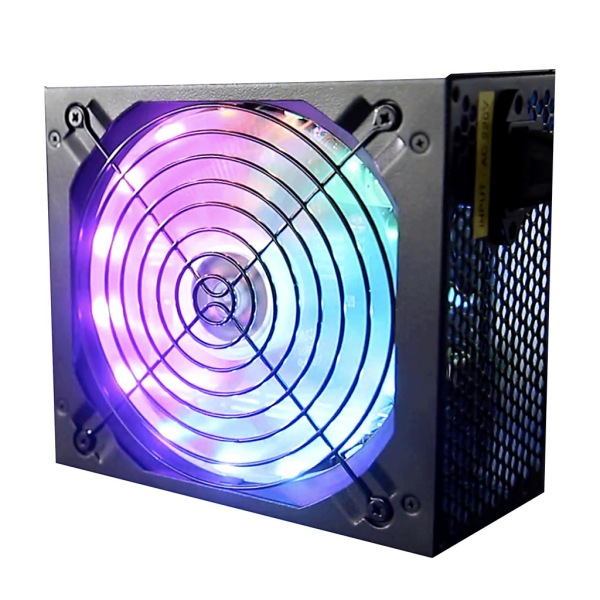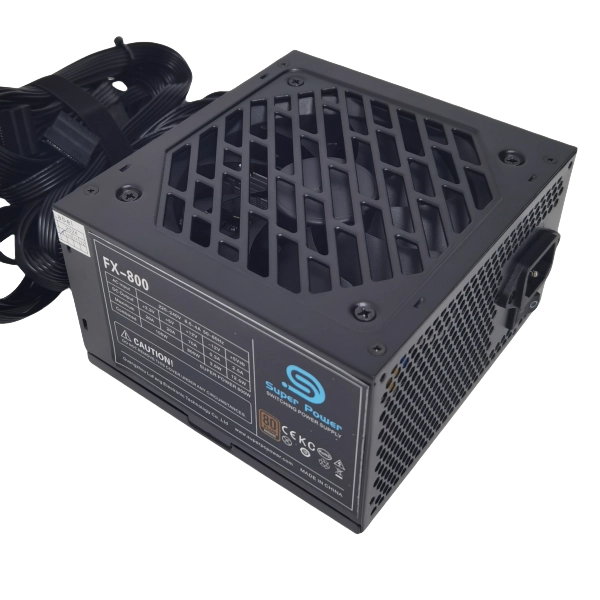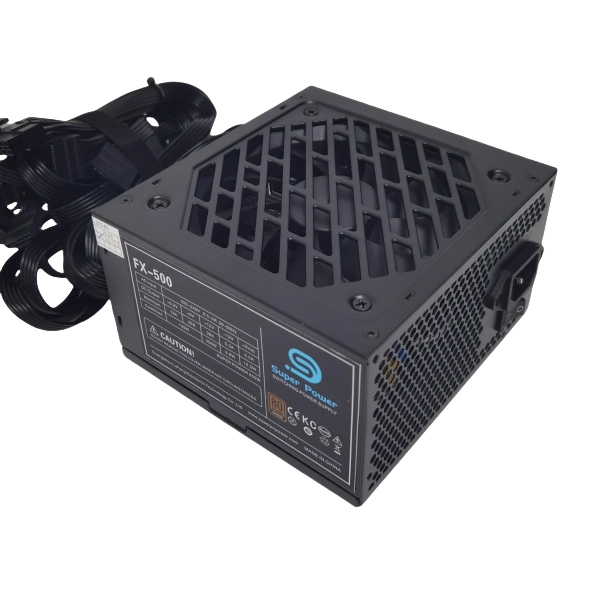-
Building E, No. 65 Xingshan North Road, Liangtian, Baisha Industrial Park, Baiyun District, Guangzhou
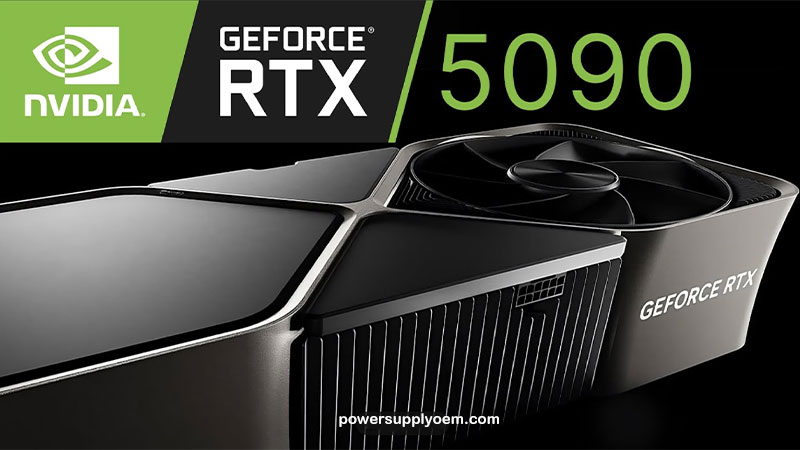
Best PSU for NVIDIA RTX 5080 and RTX 5090
What PSU Do I Need for the RTX 5080 and RTX 5090? Choosing the Best Power Supply for NVIDIA’s Next-Gen GPUs
With the anticipated release of NVIDIA’s GeForce RTX 50 series graphics cards, including the RTX 5080 and RTX 5090, many PC enthusiasts and builders are wondering what power supply unit (PSU) they’ll need. This comprehensive guide will help you determine the best PSU for your RTX 5080 or RTX 5090, considering factors like power consumption, efficiency, connectors, and future-proofing. We’ll also explore some recommended PSU models from top brands like Corsair. The information is relevant to those with an interest in PC power supply brands, 3C supermarkets, Computing equipment manufacturers, IoT device manufacturers, power supply wholesalers, agents, and owners of a large Internet cafe.
Table of Contents
1. Understanding Power Requirements for High-End GPUs
High-end GPUs, like the anticipated RTX 5080 and RTX 5090, are power-hungry components. They require a PSU that can deliver sufficient wattage and stable, clean power to ensure optimal performance and prevent system instability.
Here’s why power requirements are crucial for high-end GPUs:
- Performance: GPUs need enough power to operate at their full potential, delivering high frame rates and smooth gaming performance.
- Stability: An underpowered PSU can lead to system crashes, freezes, or unexpected shutdowns, especially during demanding tasks like gaming or rendering.
- Component Protection: A quality PSU protects your valuable GPU and other components from damage due to power fluctuations or surges.
- Overclocking: If you plan to overclock your GPU, you’ll need even more power headroom.
Therefore, choosing the right power supply is paramount when building or upgrading a PC with a high-end graphics card.
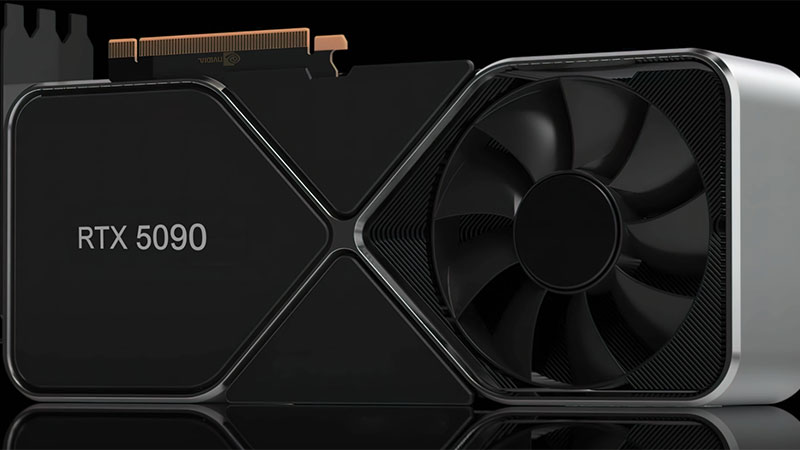
2. Projected Power Demands of the RTX 5080 and RTX 5090
While official specifications for the RTX 5080 and RTX 5090 are not yet available, we can make educated projections based on previous generations and industry trends. We can compare them to RTX 40-series GPUs, and the RTX 4080. The RTX 4090 is also a relevant comparison. The flagship RTX 5090 will likely need considerable power.
- RTX 5080: The RTX 5080 is expected to be a high-performance GPU, likely exceeding the power demands of its predecessors. Expect a total graphics power (TGP) in the range of 300-400W, possibly even higher. We will need to consider RTX 5080 specs when they are available. It’s important to know how much power the RTX 5080 draws.
- RTX 5090: The RTX 5090 is expected to be the flagship model, offering top-tier performance and, consequently, even higher power consumption. Expect a TGP of 450W or more, potentially reaching 600W or beyond in extreme scenarios. The RTX 5090 is expected to be a very powerful card.
It’s important to remember that these are just projections. The actual power demands of the RTX 50-series cards may vary. However, it’s safe to assume that they will require powerful and high-quality PSUs. NVIDIA’s upcoming RTX cards will likely continue this trend. Nvidia recommends a 1000W PSU for certain configurations.
3. Calculating Total System Power Consumption
Choosing the right PSU isn’t just about the GPU’s power requirements. You need to consider the power consumption of your entire system, including the CPU and GPU:
- List Your Components: Make a list of all the components in your PC build, including:
- CPU (e.g., Intel Core i7, i9, or AMD Ryzen 7, 9)
- GPU (e.g., RTX 5080, RTX 5090)
- Motherboard
- RAM (amount and speed)
- Storage (SSDs and hard drives)
- Cooling (fans, liquid coolers)
- Other peripherals (e.g., capture cards, sound cards)
- Estimate Component Power Draw: Research the typical power draw of each component, especially your CPU and GPU.
- Use a PSU Calculator: Online PSU calculators can simplify this process. Input your components, and the calculator will estimate your system’s total power consumption.
- Add a Buffer: Add a buffer of at least 20-30% to the calculated wattage. This provides headroom for peak power demands, ensures the PSU isn’t constantly operating at its maximum capacity, and allows for future upgrades.
For example, if your calculated system power consumption is 600W, you should opt for PSUs with 750w to 850W or even a 1000W PSU.
4. PSU Efficiency Ratings: 80 PLUS Certification Explained
The 80 PLUS certification indicates a PSU’s energy efficiency. It guarantees that the PSU will be at least 80% efficient at 20%, 50%, and 100% load, meaning it wastes less energy as heat. The tiers include 80 PLUS, Bronze, Silver, Gold, Platinum, and Titanium. With new GPUs, efficiency is key.
For high-end gaming PCs with RTX 5080 or RTX 5090 graphics cards, an 80 PLUS Gold rating or higher is strongly recommended. Platinum and Titanium-rated PSUs offer even higher efficiency, but they come at a premium price. Look for a PSU rated for high efficiency.
5. Modular vs. Non-Modular PSUs: Cabling Considerations
PSUs come in three main cabling configurations:
- Non-Modular: All cables are permanently attached.
- Semi-Modular: Some cables (usually essential ones like the 24-pin ATX and CPU power) are permanently attached, while others are detachable.
- Fully Modular: All cables are detachable.
For high-end builds, especially those with powerful GPUs like the RTX 5080 and RTX 5090, fully modular or semi-modular PSUs are highly recommended. They allow you to use only the necessary cables, improving airflow and cable management, which is particularly important in cases with limited space.
6. Connectors: Ensuring Compatibility with the RTX 50 Series
The RTX 50 series graphics cards are likely to use the 12VHPWR (12V-2×6) power connector, which was introduced with the RTX 40 series. This connector is designed to deliver more power than the traditional 6-pin or 8-pin PCIe connectors. New RTX cards may require new connectors.
Ensure the PSU you choose has the necessary 12VHPWR connector (or multiple connectors, depending on the specific RTX 50 series card). Some PSUs might include a native 12VHPWR cable, while others might require an adapter. It’s always better to use a native cable for optimal power delivery and to avoid potential issues.
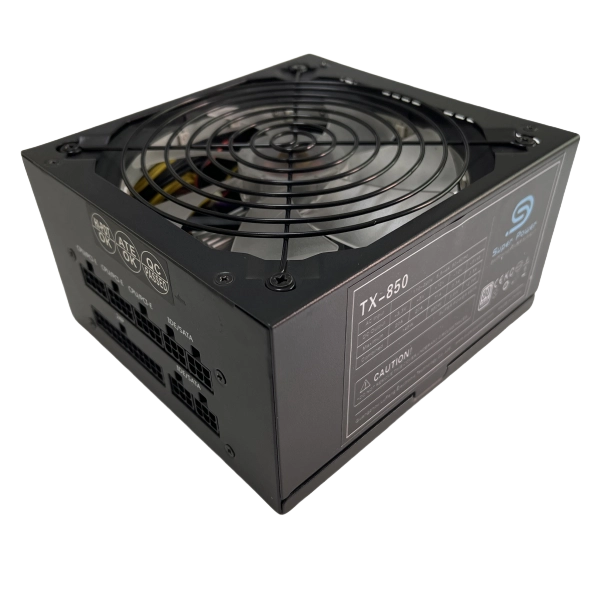
7. Recommended PSU Brands and Models
Many reputable brands offer power supplies suitable for high-end GPUs like the RTX 5080 and RTX 5090. Some of the top brands include:
- Corsair: Corsair power supplies are a popular choice for gaming PCs, offering a wide range of options with different wattage ratings, efficiency certifications, and features. The RMx, HX, and AXi series are particularly well-regarded. An 850W PSU from Corsair is a good option. In fact, for the RTX 5080, Corsair is a great choice.
- Seasonic: Seasonic is a highly respected power supply manufacturer, known for its excellent build quality, efficiency, and long warranties.
- EVGA: EVGA offers a variety of power supplies for gaming and high-performance PC builds.
- be quiet!: be quiet! specializes in quiet PC components, and their power supplies are known for their low noise levels.
- Cooler Master: Cooler master offers a diverse range of components, including high-quality power supplies.
- ASUS ROG: ASUS’ Republic of Gamers (ROG) brand offers premium power supplies designed for high-end gaming systems.
Specific model recommendations will depend on the final power requirements of the RTX 5080 and RTX 5090, but look for units in the 850W-1200W range with 80 PLUS Gold or higher certification and native 12VHPWR connectors.
8. Future-Proofing Your PC Build
When choosing a PSU for your RTX 5080 or RTX 5090 PC build, it’s wise to consider future upgrades. You might want to add more storage, upgrade your CPU, or even add a second GPU in the future.
Here’s how to future-proof your power supply:
- Choose a Higher Wattage: Select a PSU with a significantly higher wattage than your current system’s estimated power consumption. This provides headroom for future upgrades without needing to replace the PSU.
- Consider Multiple GPUs: If you might consider running multiple NVIDIA GPUs in SLI configuration in the future (if supported by the 50-series), choose a PSU with enough wattage and PCIe connectors to handle it.
- Look for a Long Warranty: A longer warranty (e.g., 10 years) indicates the manufacturer’s confidence in the PSU’s reliability and longevity.
By planning ahead, you can save yourself the hassle and expense of replacing your PSU sooner than necessary.
9. OEM Power Supplies: The Benefits of a Direct Partnership
As an OEM (PC power supply, ATX power supply, SFX power supply, FLEX power supply, TFX power supply, 80 PLUS Gold) manufacturer, we specialize in providing customized power solutions for:
- PC power supply brands.
- 3C supermarkets.
- Computing equipment manufacturers.
- IoT device manufacturers.
- Power supply wholesalers.
- Agents.
- Large Internet cafes.
Partnering with us offers significant benefits:
- Customization: We can tailor power supplies to your exact specifications, including wattage, form factor, connectors, cabling, and branding.
- Quality: We use high-quality components and rigorous testing procedures to ensure the reliability and performance of our power supplies, ensuring they can provide stable and efficient power.
- Cost-Effectiveness: Buying directly from the manufacturer often results in better pricing, especially for bulk orders.
- Expert Support: Our team provides technical support and guidance throughout the design and manufacturing process.
Working directly with an OEM manufacturer gives you greater control over the quality, specifications, and cost of your power supplies.
10. Case Studies: PSU Selection for RTX 50 Series Builds
Let’s explore some hypothetical PC build scenarios with the RTX 5080 and RTX 5090 and appropriate PSU selections:
- Case Study 1: RTX 5080 Mid-Range Gaming PC
- CPU: AMD Ryzen 7 7700X or Intel Core i7-13700K
- GPU: NVIDIA GeForce RTX 5080 (estimated TGP: 320W)
- Other Components: 32GB DDR5 RAM, 1TB NVMe SSD, standard ATX motherboard, air cooler.
- Estimated Total System Power Consumption: 550-650W
- Recommended PSU: 750W-850W 80 PLUS Gold, with native 12VHPWR connector.
- Case Study 2: RTX 5090 High-End Gaming/Workstation PC
- CPU: AMD Ryzen 9 7950X3D or Intel Core i9-13900K
- GPU: NVIDIA GeForce RTX 5090 (estimated TGP: 450W-600W)
- Other Components: 64GB DDR5 RAM, multiple NVMe SSDs, custom liquid cooling, high-end ATX motherboard.
- Estimated Total System Power Consumption: 800W-1000W+
- Recommended PSU: 1000W-1200W 80 PLUS Platinum or Titanium, with native 12VHPWR connector.
- Case Study 3: RTX 5080 Small Form Factor Build:
- Components: Similar to Case Study 1
- Recommended PSU: ATX 80 PLUS GOLD TX 850w
Ordinary users: Choose an 850W 80 plus gold ATX 3.1 power supply with a native 16-pin or four 8-pin interfaces to meet daily gaming and creative needs.
High-end/overclocking users: It is recommended to use a 1000W or higher power supply, and ensure the quality of the interface and cables to cope with extreme loads and future hardware upgrade needs.
These are hypothetical scenarios, and the actual power requirements may vary. However, they illustrate the importance of choosing a PSU that can comfortably handle the power demands of your chosen components, with some headroom for overclocking and future upgrades. Choosing the right PSU is key.
Frequently Asked Questions
What happens if I choose a PSU with too little wattage for my RTX 5080 or RTX 5090?
Your system may experience instability, random shutdowns, crashes, or it may not even power on at all. In the worst-case scenario, an underpowered PSU could damage your expensive GPU or other components.
Can I use my existing PSU with an RTX 5080 or RTX 5090?
It depends on your current PSU’s wattage, efficiency, and connectors. If your existing PSU is relatively new, high-quality, and has enough wattage and the correct connectors (including 12VHPWR), it might work. However, it’s always best to err on the side of caution and choose a PSU that meets or exceeds the recommended specifications for your new GPU. Your PSU might not be sufficient.
What is the 12VHPWR connector, and do I need it?
The 12VHPWR (or 12V-2×6) connector is a new power connector introduced with NVIDIA’s RTX 40 series and is expected to be used on the RTX 50 series as well. It’s designed to deliver more power to the GPU than traditional PCIe connectors. If your RTX 50 series card uses this connector, you’ll need a PSU that either has a native 12VHPWR cable or comes with a compatible adapter.
What is the best PSU brand for an RTX 5080 or RTX 5090?
There isn’t a single “best” brand, but reputable brands like Corsair, Seasonic, EVGA, be quiet!, and Cooler Master are known for producing high-quality PSUs. As an OEM, we also produce high quality units. Always read reviews and check specifications before making a decision.
How do I connect the PSU to the RTX 50 series GPUs?
You will need to use the connectors that fit.
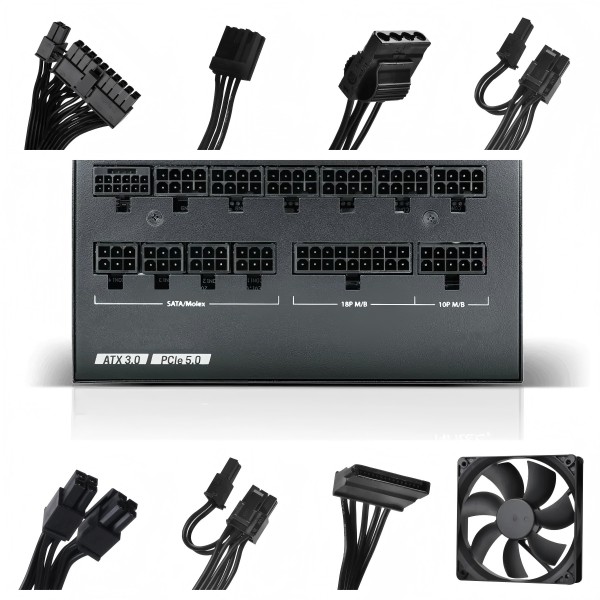
Summary
- Choosing the right PSU is crucial for a stable and high-performing gaming PC, especially with power-hungry GPUs like the anticipated NVIDIA RTX 5080 and RTX 5090. You need a PSU that meets the requirements.
- Calculate your system’s total power consumption, considering all components, and add a buffer for headroom.
- Look for PSUs with an 80 PLUS Gold or higher efficiency rating for optimal energy efficiency and reduced heat output. Consider obtaining a PSU with high efficiency.
- Choose a PSU with the necessary connectors, including the 12VHPWR connector if required by your RTX 50 series graphics card.
- Consider modular or semi-modular PSUs for better cable management.
- Future-proof your build by selecting a PSU with a higher wattage than your current needs.
- As an OEM power supply manufacturer, we offer customized solutions tailored to your specific requirements for RTX 50 series builds and other applications.
- Partnering with us provides access to expertise, quality, cost-effectiveness, and customization options.
- We have a PC POWER SUPPLY for every need.
- The RTX 5080 will likely require a robust PSU.
- We offer options for gaming systems.
- The information in this guide will help you select the best PSU.
- Remember that the power supply is crucial to system performance.

